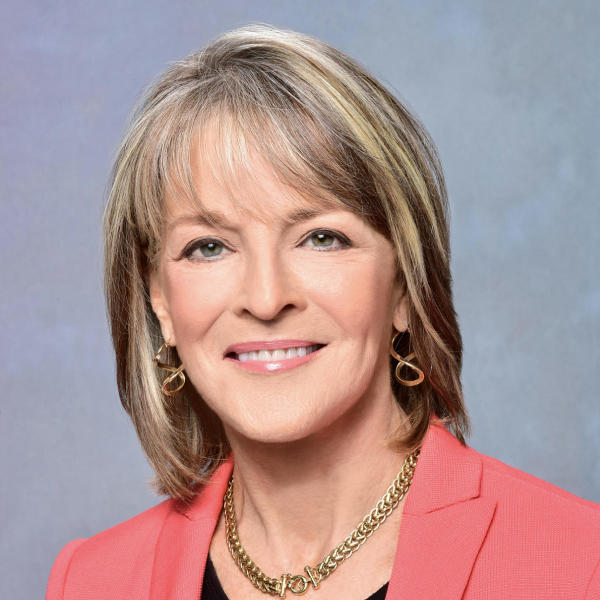At Duke, Doctors Teach Obesity Ownership
With six out of 10 of us fighting the battle of the bulge, it's time to face facts with a little help from the experts at one of the nation's leading weight loss centers, the Duke Diet and Fitness Center in Durham, N.C.
The man with the answers is Dr. Howard Eisenson, but for just about every answer, there seems to be another question, reports "CBS News Sunday Morning" Senior Correspondent Rita Braver.
Take talk about an "obesity gene."
"We thought that there might be for a while, but it looks like it's not that simple, unfortunately," Eisenson told Braver. "That's probably several hundred genes that play a role in body weight regulation."
"Is it fair to say that part of it is about will power?" Braver asked.
"I don't think you can generalize and say that someone who suffers from excess weight lacks will power, because they may have a great deal of self discipline in many aspects of their life," Eisenson said.
What's the link between obesity and depression?
We put that question to psychologist Ruth Wolever, director of behavioral health at Duke.
"I think you have some people who are depressed because they are obese, some who are obese because they are depressed," Wolever said. "It's one of those things that is also very much intertwined."
Visit CBSNews.com's "Healthy Living" Section
What if you grew up in an environment surrounded by food?
"My mother always fed me, that kind of the excuse," Braver said.
"That's right," Eisenson said. "'I grew up with that' or 'I do a lot of socializing at my work,' or 'My spouse insists upon keeping the refrigerator stocked with all kinds of foods that tempt me.' But ultimately if we're going to be successful, we have to take ownership for solving our problem."
The program at Duke is designed to help patients do just that. There are medical checkups to monitor obesity-related diseases. Patients get counseling on exercise, nutrition and behavior. Classes teach you how to change everything, even your dishes.
"Not very satisfying if you have a small portion on a big plate, so try to invest in some smaller plates at home, maybe a salad plate when you're eating dinner," a teacher told her class during Braver's visit.
It is a whole new way of looking at life.
"There is no panacea; this is a lifelong condition that people have to manage over and over again," Wolever told Braver.
The program isn't cheap. The average stay here is about $8,000 a month.
Nationally, only 20 percent of dieters say they maintain their weight loss after a year. But Duke says it has around an 80 percent success rate.
Still, there are plenty of repeat customers, like 71-year-old Jim Collier.
"I've come here now three times in three years," Collier told Braver.
Collier insists the third time is the charm.
"I feel this time I've learned to put myself in control and no longer expect others to do it for me," Collier said.
For some patients, doctors discuss a more drastic solution: Surgery - having a stomach partially removed or stapled.
"I don't want them to leave here without having heard the facts about surgery, basically that it's safer and more effective than many people realize," Eisenson told Braver.
And a new kind of help may be in our future.
Dr. Louis Aronne of the New York Presbyterian Hospital Weil Cornell Medical Center believes that - eventually - new drugs will keep us from getting fat in the first place.
"I envision a future where maybe you should be treating obesity like high blood pressure," Aronne told Braver. "As they start to gain weight and get to a certain point we intervene with a tiny amount of medicine to prevent them from gaining more weight. Maybe that's what we need to be doing."
In the meantime, there is a new generation of weight loss drugs that could be available soon, including Qnexa.
"Could this be the magic pill we're all waiting for?" Braver asked.
"I think there will be a number of effective treatments that become available; this will be one of them," Aronne said. "People who continued in this trial for one year lost between 13 and 15 percent of their body weight."
While they can have side effects, Aronne said the new drugs represent a better understanding of weight regulating systems in the body.
"Basically they work in the brain to reduce the sense of craving to increase your sense of fullness and to increase metabolic rates," Aronne told Braver.
Just what the doctor ordered? Maybe. But as researchers come to understand the disease that is now this nation's second-leading preventable cause of death (after smoking), they also understand that there is no such thing as one-size-fits-all.
No one knows that better than Duke patient Jane Barnes.
"What's your eating pattern at home?" Braver asked.
"McDonald's in the morning and fast food at lunch," Barnes said. "I was sabotaging myself before, and coming here in just a week's time, it's opened up my eyes to what I was doing."
"So if we come back in a year what will we find about you then?" Braver asked.
"I plan on being, you know, 50 to 100 pounds lighter, more involved with exercising, feeling good about myself 'cause of the weight loss, dressing better," Barnes said.
"So a new you?" Braver asked.
"A new me."
For more info:
Healthy Weight (Centers for Disease Control and Prevention)
Trust for America's Health
More Stories and Videos from the "Sunday Morning" Special Edition, "Size Matters":
Obesity: A Weighty Issue
Physique Helps Mo'Nique Strike It Big
In Slim Role, Bertinelli Beats Back Bulge
Deep-Frying Is Where the Magic Happens
A Parisian Food Fight
A Body of Work: Artistic Ideals of Beauty
Slideshow: Body Art
The Axis of Food Evil: Fat, Sugar and Salt
Welcome to Thin City: Colorado's Low Rate of Obesity
Nancy Giles with Big Questions on BMI
